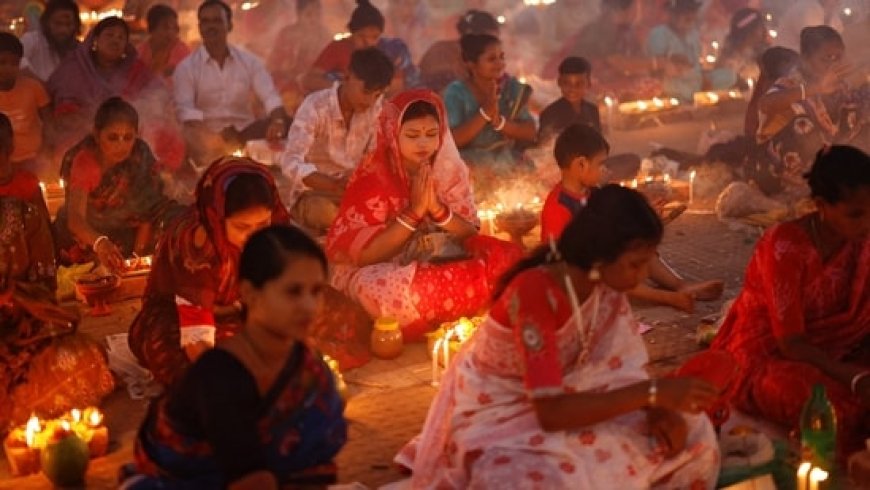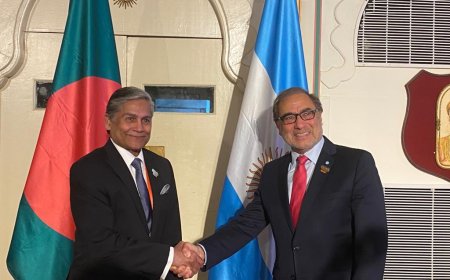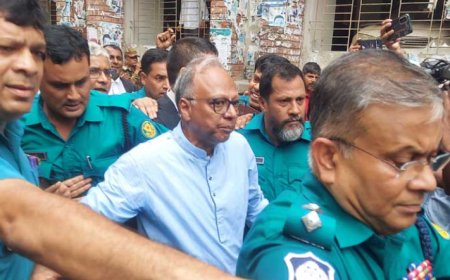A senior Bangladeshi official has advocated for removing the term "secular" from the country's Constitution, pointing to the fact that 90% of the population is Muslim
Hindus, who make up approximately 8% of Bangladesh's nearly 170 million population, have been subjected to over 2,000 attacks since August 4.

Bangladeshi Attorney General Proposes Constitutional Reforms
Md. Asaduzzaman, the Attorney General of Bangladesh, has called for significant constitutional reforms, including the removal of the term "secular," citing that “90% of the country's population is Muslim.” During a hearing on the legality of the 15th Amendment before Justices Farah Mahbub and Debashish Roy Chowdhury, Asaduzzaman argued that constitutional amendments should uphold democracy rather than promote authoritarianism.
He stated, “In the past, there was unwavering trust and faith in Allah. I wish to see it restored. Article 2A of the Constitution ensures equal rights for practicing all religions, while Article 9 emphasizes 'Bengali nationalism.' This contradiction must be addressed.”
Debate Over the "Father of the Nation" Label
Asaduzzaman also questioned constitutional provisions that designate Sheikh Mujibur Rahman as the "Father of the Nation." While acknowledging Mujibur Rahman’s pivotal contributions, he argued that enforcing such recognition through legislation fosters division and restricts freedom of speech. Instead, he called for reforms that honor Bangladesh's democratic principles, Liberation War values, and national unity, urging the court to reevaluate the 15th Amendment's validity.
Concerns About Democratic Principles
The Attorney General criticized Articles 7A and 7B of the Constitution, which prohibit amendments that could undermine democracy, arguing that these provisions stifle democratic reforms and centralize political power. “These articles are tools to perpetuate dictatorship under the guise of democracy, violating the rule of law,” he said.
Additionally, Asaduzzaman condemned the removal of the caretaker government system, which once oversaw elections, stating that its abolition eroded public confidence, compromised fundamental rights, and weakened Bangladesh's democratic institutions. He called for the revocation of the 15th Amendment, asserting that it contradicts the spirit of the Liberation War and disrupts the nation's democratic legacy.
Rising Attacks on Hindu Minorities
Meanwhile, Bangladesh has witnessed a surge in attacks against its Hindu minority, prompting widespread protests. Tens of thousands of Hindus rallied across the country this month, demanding protection from escalating violence and the withdrawal of sedition charges against Hindu leaders. In Chattogram alone, around 30,000 protesters gathered under tight security from police and military forces.
Since early August, when Prime Minister Sheikh Hasina’s secular government was ousted following a student-led uprising, Hindu organizations have reported thousands of attacks. The Bangladesh Hindu Buddhist Christian Unity Council has documented over 2,000 incidents targeting Hindus since August 4, while Nobel Peace laureate and interim leader Muhammad Yunus has dismissed these figures as exaggerated.
The violence includes arson attacks in Chattogram, where tribal homes and businesses were burned. In response, India urged Bangladesh to protect its Hindu minority. Tensions further escalated after clashes erupted between Hindus and law enforcement over a Facebook post critical of ISKCON. Calls to ban ISKCON have fueled growing religious tensions in the country.
What's Your Reaction?




















































































